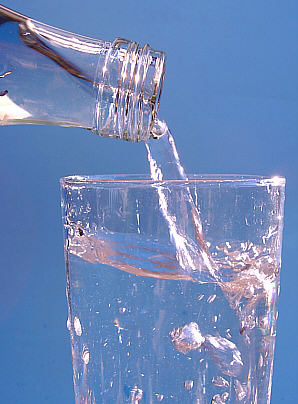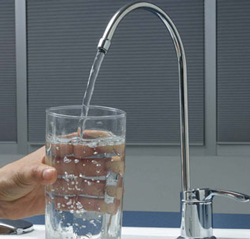
The harmful contaminants that are in your tap water are too small to see with the naked eye. In order to get a better read on the water quality, these contaminants are grouped into a measurement know as total dissolved solids.
What are total dissolved solids?
Total dissolved solids (often abbreviated as TDS) is a measurement of the amount of dissolved particles in your water. A dissolved particle can pass through a filter with pores of two microns in size.
A measurement of total dissolved solids in water includes a variety of different forms of contaminants, some of which are more harmful than others. Some of the most common dissolved solids in water include calcium, chlorides, THM’s, nitrates, phosphorus, iron, sulfur and bacteria.
What effects do total dissolved solids have on water quality?
Total Dissolved Solids are a very wide range of contaminants, so they have different effects based on which ones are in the water, and what levels. However, a high TDS count will generally result in:
- A higher potential for poor water quality. When your water is high in total dissolved solids, it has an elevated chance of containing contaminants that will affect the quality of the water you use for drinking and bathing.
- Bad tasting water. Water with a high TDS count is often described as tasting salty, bitter or metallic.
- Bad smelling water. Water with a high TDS count also usually contains particles that negatively affect its smell.
- Corroding of plumbing appliances. If your water contains a high level of total dissolved solids, it can corrode and shorten the life of your plumbing appliances.
How can you reduce the amount of total dissolved solids in your water?
We at Evolution Healthworks offer solutions to the problems caused by TDS. Our Aura H2O Water Filter removes these contaminants and provides the healthiest drinking water. Also, we offer Whole Home Systems which can filter the water that comes out of all the taps.



